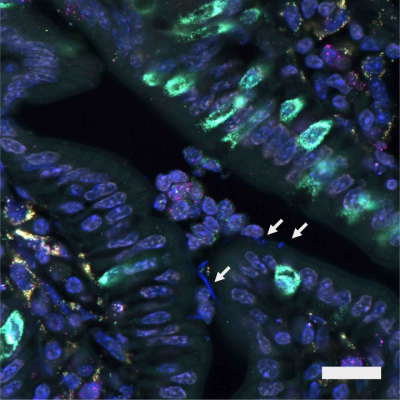As Federation Bio fades away, Kanvas Biosciences has snapped up two of the biotech’s assets as well as its microbial library and the company’s chief scientific officer Lee Swem, Ph.D., to lead program development.
“We did not acquire all of Federation Bio because they were looking at doing different things with some of their other programs,” Matthew Cheng, Kanvas co-founder and CEO, told Fierce Biotech. “So we were able to pick up the parts that we thought had the most synergy with our existing platform.”
One of the two assets acquired is Federation’s main compound FB-001, which ushers microbiome-based Kanvas into a new stage as a clinical company. FB-001, an oral therapy consisting of 148 bacterial strains taken from multiple healthy donors, has undergone a phase 1 trial for patients with enteric hyperoxaluria, an illness that causes excess absorption of oxalate.
“They completed a phase 1 trial in humans and showed it was very safe,” Cheng explained. Now, Kanvas plans to “repurpose” FB-001 as an investigational treatment for inflammatory bowel disease (IBD). The young biotech, formed in 2020, is currently exploring partnership opportunities for the IBD program.
The other acquired asset is a preclinical immuno-oncology program that comes complete with a collaboration with University of Texas MD Anderson Cancer Center. Kanvas will integrate itself into the ongoing work with MD Anderson to design a consortium of bacteria aimed at helping more cancer patients benefit from immunotherapy. The end goal is a synthetic microbiome-based therapy made of fecal microbiota transplant strains. After peeking at early preclinical data, the partners intend to start drug manufacturing soon, according to Kanvas.
That process will be supported by New Jersey-based Kanvas’ new cell banking facility in San Francisco. Formerly operated by Federation, the site is part of today's deal as well.
“We think that Federation Bio really was one of the world leaders in biomanufacturing these very complex microbial consortia,” Cheng said.

To guide development of the newly acquired programs, Kanvas has also brought over Federation’s former CSO Swem—who now serves as Kanvas’ chief development officer—alongside seven other Federation employees. The new additions bring the biotech’s team to a total of 19 staffers.
Financial details of the deal were not disclosed.
In June, Kanvas raised $12 million in a pre-series A, but Cheng couldn’t share any details of a potential series A round quite yet.
In the meantime, Kanvas will continue to build out its microbiome drug screening, discovery and manufacturing platform, including advancing its own preclinical bacterial vaginosis program. The science behind the platform was licensed from Cornell University and includes highly multiplexed spatial imaging technology that provides a Google Maps-like experience for visualizing the native microbiome.
Microbiome companies have had a mixed go at it in recent months. Some have seen success, such as Seres Therapeutics and Nestle Health Science, which had their oral microbiome-based therapeutic approved by the FDA in April to treat recurrent Clostridioides difficile, while others have faced persistent failures, such as Evelo Biosciences and the now shuttered Kaleido Biosciences.
Kanvas CEO Cheng said there are two obstacles that have historically challenged microbiome therapy companies: understanding how the therapy interacts with the body and manufacturing the complex medicines. Cheng believes Kanvas has the tools to overcome both hurdles, with its novel spatial biology platform providing a deep dive into understanding the body’s interaction with microbiome therapeutics while its acquisition of Federation’s science and manufacturing resources tackles the latter issue.
As for Federation, the biotech appears to be finished. The company’s website no longer exists, and its phone number has been disconnected.
Just this June, the microbiome-focused company laid off an undisclosed number of staff. The biotech launched three years ago after raising $50 million in series A funds. At the time, the promise of tapping the microbiome as a reservoir for potential therapeutics was enough for Emily Conley, Ph.D., to leave an executive position at genomics company 23andMe to helm the company.
Time will tell whether Kanvas is able to achieve what others, such as Federation, could not.